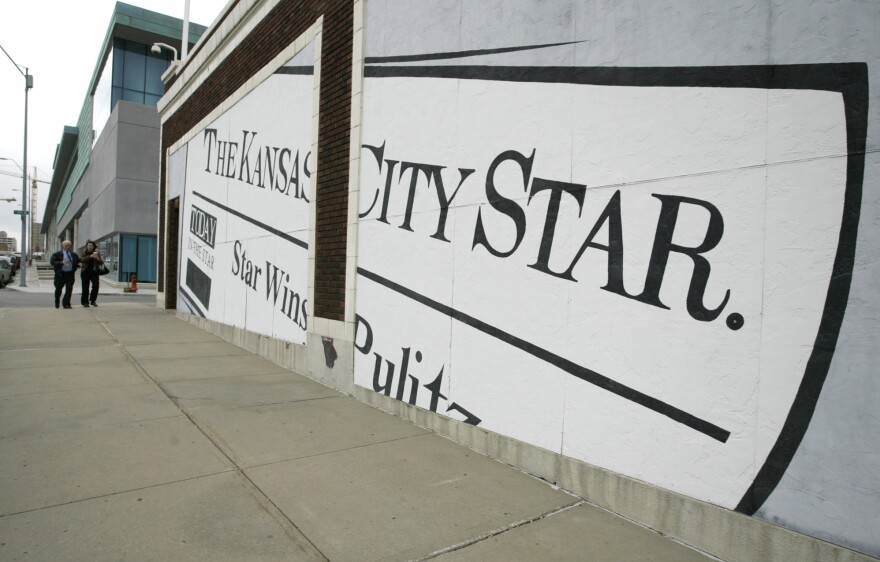One of the most prestigious newspapers in the midwestern United States issued an apology for what it called "both action and inaction in shaping and misshaping" the history of Missouri's most populous city and its surrounding region.
In a post titled, "The truth in Black and white: An apology from The Kansas City Star," the paper acknowledged its historic role in shaping attitudes in and around the city. The paper also noted it "disenfranchised, ignored and scored generations of Black Kansas Citians" for much of its 140 years of existence.
Negative portrayals of Black Kansas Citians in The Star buttressed stereotypes and played a role in keeping the city divided. Editor Mike Fannin apologizes: https://t.co/GGiZlHUhDS
— The Kansas City Star (@KCStar) December 20, 2020
"[The Star] reinforced Jim Crow laws and redlining. Decade after early decade it robbed an entire community of opportunity, dignity, justice and recognition," the president and editor of the paper Mike Fannin, who is white, wrote Monday.
"It is time that we own our history," he continued. "It is well past time for an apology, acknowledging, as we do so, that the sins of our past still reverberate today."
The paper confessed to decades of coverage that perpetuated stereotypes of Black Kansas Citians "as criminals living in a crime-laden world," while giving short shrift to achievements, milestones and contributions made by the community. It was, as the paper put it, "as if Black people were invisible."
Speaking Tuesday on All Things Considered, Mara Rose Williams, the Kansas City Star reporter whose idea sparked the paper's six-part package reexamining how it historically covered Black communities, called the project "like none other than I have done in my 40 years as a journalist."
She gave one example of how a local school district repeatedly made a series of boundary changes to keep the schools segregated, but with a fresh perspective she realized the paper never connected the data points to see what was afoot.
"We may have written about a boundary change as it occurred at a school board meeting," said Williams, who is Black. "But what we didn't do was make the connection as to why they were making these boundary changes."
After reviewing a trove of documents, Williams and her colleagues at The Star discovered roughly two dozen such school boundarychanges in a two-year period, some that she said were just a single block.
"We didn't dig in deep enough to make the connection that it was to keep the schools segregated. To keep white children in one part of town and Black children in another part of town," Williams said. "Which was also a violation of federal law at the time."
There were other more glaring instances, too.
One example is in the paper's coverage – or lack thereof — of Black cultural icon and native son, saxophonist Charlie "Bird" Parker.
The paper notes that the jazz phenom never got "a significant headline in The Star until he died, and even then, his name was misspelled and his age was wrong."
Meanwhile, the paper points out, a white businessman known for promoting segregated communities "got plenty of ink."
The paper also takes a close examination of its coverage during the civil rights era of the 1950s and 1960s, when it largely ignored the movement that helped shape the United States for the next half century.
"We don't need stories about these people," the paper's then-top editor Roy Roberts reportedly said at the time, according to The Star.
The push to reconsider the paper's past coverage comes amid a present-day national reckoning on race and social inequities, considered by many to be a modern civil rights movement.
A positive step by the @KCStar with more needed. Now I hope my friends in the local TV news business do the same. https://t.co/g4sPwlPCgy
— Mayor Q (@QuintonLucasKC) December 20, 2020
It was sparked by the Memorial Day killing of George Floyd by Minneapolis police. It has since grown to include other names that have also become rallying cries, including Breonna Taylor, Ahmaud Arbery, Rayshard Brooks, Elijah McClain and Jacob Blake as demonstrators call for changes in social justice, policing and increased representation of people of color in government and business.
Kansas City Mayor Quinton Lucas, known to many as simply "Mayor Q," called the move by The Star a "positive step" but added that similar steps need to be taken by local businesses and television news stations.
The paper too is calling on local businesses to come forward "and own their history as well." It is encouraging those businesses to "get the poison out –for the sake of the community and their employees."
Copyright 2021 NPR. To see more, visit https://www.npr.org. 9(MDAxNzg0MDExMDEyMTYyMjc1MDE3NGVmMw004))








